Pharmaceutical Sciences Program
Pharmaceutical Sciences Program
Program Mission Document: Pharmaceutical Sciences
To graduate qualified pharmacists able to compete in the labor market, conduct pharmaceutical research, and contribute to improving the health care for patients.
Program Objectives Document: Pharmaceutical Sciences
- To provide students with fundamental principles & concepts of pharmaceutical field and related sciences.
- To provide students with the basic and professional skills required to practice pharmacy.
- To develop the students’ skills in scientific pharmaceutical research.
- To improve graduates' career opportunities through continuing professional development and lifelong learning.
Study System:
Program Intended Learning Outcomes (PILOs): Pharmaceutical Sciences
A. Knowledge and Understanding: Upon successful completion of the undergraduate Pharmaceutical Sciences Program, graduates will be able to:
- A1. Recognize the fundamental knowledge and principles of biomedical, pharmaceutical, social, behavioral, administrative, clinical sciences, and general sciences.
- A2. Explain the essential knowledge about designing, isolation, extraction, preparation, formulation, manufacturing, quality control, and quality assurance of natural and synthetic medicines and biopharmaceuticals in compliance with standard operating procedures (SOPs) and GMP guidelines.
- A3. Illustrate broad knowledge about physicochemical properties of drug structure and other fundamental sciences to explain the mechanism of action, effectiveness, use, safety, side effects, and interactions of therapeutic agents as well as complementary therapies including phytotherapy.
- A4. Define the pharmacist's roles in providing pharmaceutical care including prescription and non-prescription medications, natural health products, and devices based on updated information and research outcomes to promote public healthcare and wellness.
- A5. Recognize the advanced concepts of professional ethics, policies, laws, regulations, requirements, management (pharmacovigilance, pharmacoepidemiology, pharmacoeconomic, pharmacoinformatic, etc.) to optimize therapeutic outcomes.
B. Cognitive/ Intellectual Skills: Upon successful completion of the undergraduate Pharmaceutical Sciences Program, graduates will be able to:
- B1. Predict the drug properties from molecular structure that affect pharmacokinetic parameters and interaction with targets in the body.
- B2. Integrate knowledge from fundamental sciences necessary for handling, identification, extraction, designing, preparing, manufacturing, quality control, and quality assurance of synthetic/natural pharmaceutical and biopharmaceutical materials/products according to GLP and GMP guidelines.
- B3. Design/prioritize potential strategies for dispensing and monitoring prescriptions, minimizing medication errors, and solving encountered pharmaceutical problems based on updated drug information resources and research results.
- B4. Determine possible strategies to support national pharmaceutical industries (technologies/formulations) based on potential business opportunities in meeting medical needs of the patient and community.
- B5. Merge pharmacological knowledge about natural and synthetic medicines with policies, information systems, workforces, service delivery, pharmacovigilance, pharmacoepidemiology, pharmacoeconomic factors to enhance healthcare systems.
C. Practical and Professional Skills: Upon successful completion of the undergraduate Pharmaceutical Sciences Program, graduates will be able to:
- C1. Apply knowledge, practical, and industrial skills in handling, designing, pre-formulation, manufacturing development, packaging, storage, and quality assurance of synthetic/natural pharmaceutical preparations including drug delivery systems according to GLP, GCP, and cGMP guidelines.
- C2. Practice extraction/synthesis and analysis of pharmaceutical potential agents.
- C3. Utilize the pharmacokinetics, pharmacodynamics of medicines, pharmacogenetic profile, and disease pathophysiology to dispense medication and ensure optimal pharmaceutical care for the patient according to updated guidelines and evidence outcomes in compliance with GPP and ethical manner.
- C4. Utilize management skills in procurement activities, inventory, distribution, pharmaceutical marketing, registration, and documentation of interventions in patient’s drug therapy and pharmaceutical products.
- C5. Advise/educate patients on the safe, cost-effective, and rational use of herbal/synthetic medicines and devices including the use, storage, contraindications, drug-drug/drug-food interactions, and side effects of non-prescription and prescription medicines.
- C6. Contribute to creating/improving national drug policies, laws, and regulations related to healthcare systems.
D. General and Transferable Skills: Upon successful completion of the undergraduate Pharmaceutical Sciences Program, graduates will be able to:
- D1. Demonstrate leadership, time management, critical thinking, problem-solving, communication, independence, creativity, innovation, entrepreneurial, delegation, and organizational skills.
- D2. Develop lifelong learning, particularly an awareness of the need for continuing education, scholarship, and professionalism in the field of pharmaceutical practice.
- D3. Assess the requirements of research and resources of information related to drug discovery, development of pharmaceutical products, and pharmaceutical-care practice.
Graduate Attributes Document: Pharmaceutical Sciences Program
Graduate Attributes: Upon successful completion of the undergraduate Pharmaceutical Sciences program, graduates will be able to:
- Knowledgeable: Possess comprehensive knowledge associated with the practice of pharmacy.
- Professional practice: Recall knowledge for manufacturing and development of pharmaceutical products and pharmacy practice.
- Care Provider: Provide patients with pharmaceutical care ethically and legally.
- Ethical: Act responsibly in preparing and dispensing medications legally, ethically, and with integrity within social and cultural contexts.
- Problem solver: Identify and solve problems related to pharmacy practice.
- Communicator: Communicate effectively with pharmacists, patients, and other healthcare providers.
- Leader: Perform necessary pharmacy administrative duties and practice.
- Lifelong learner: Commit to independent and lifelong learning using up-to-date technology.
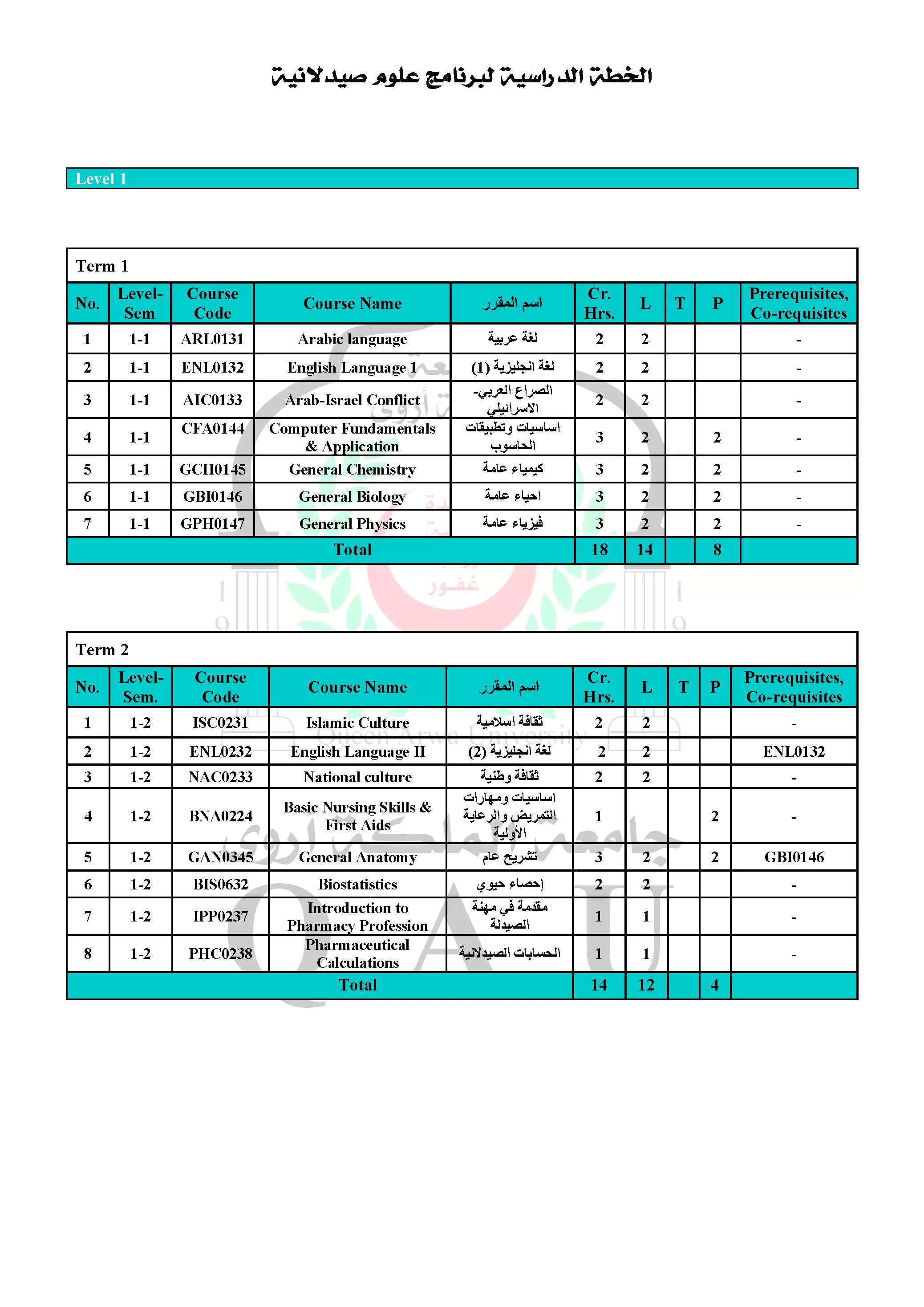
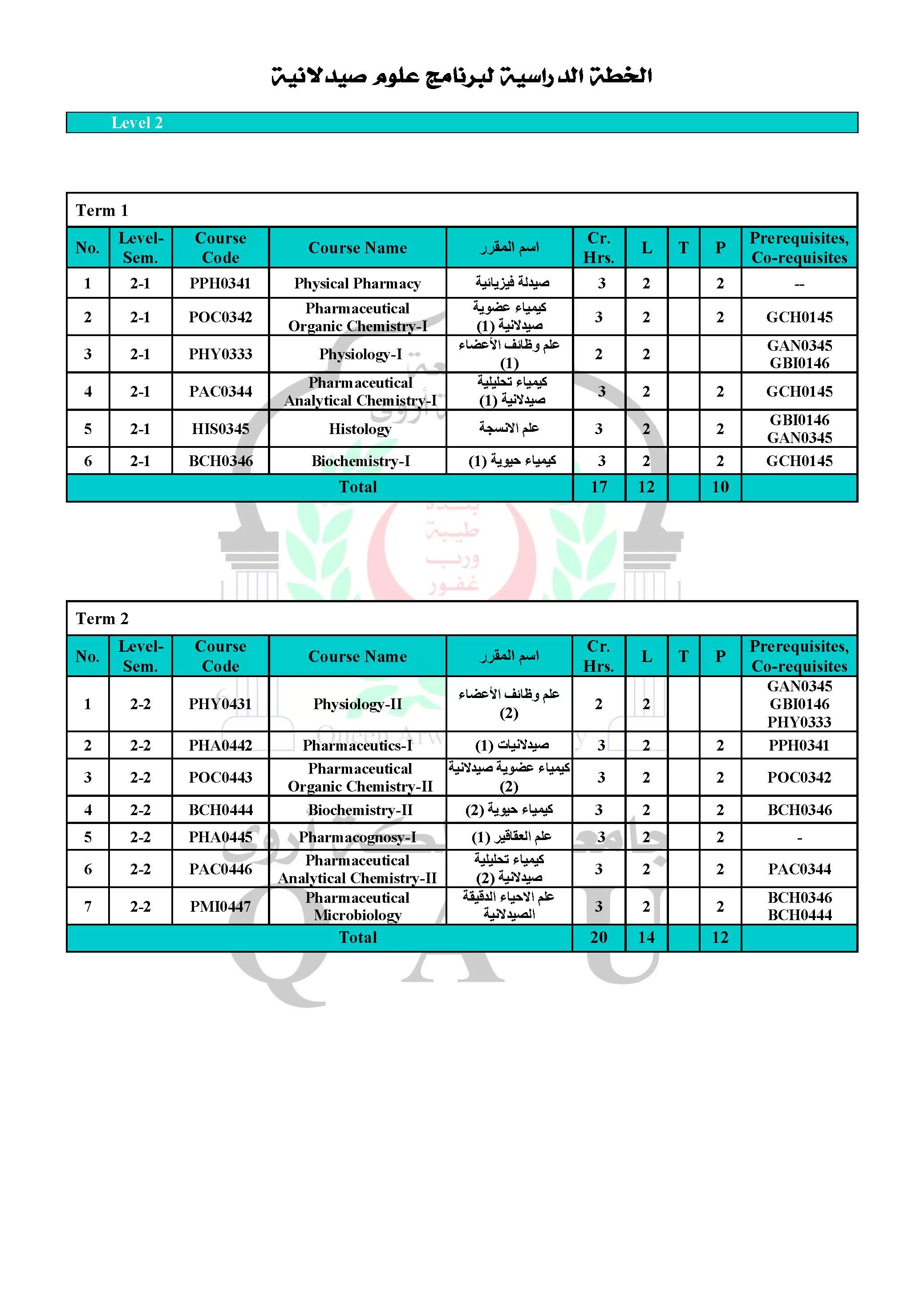
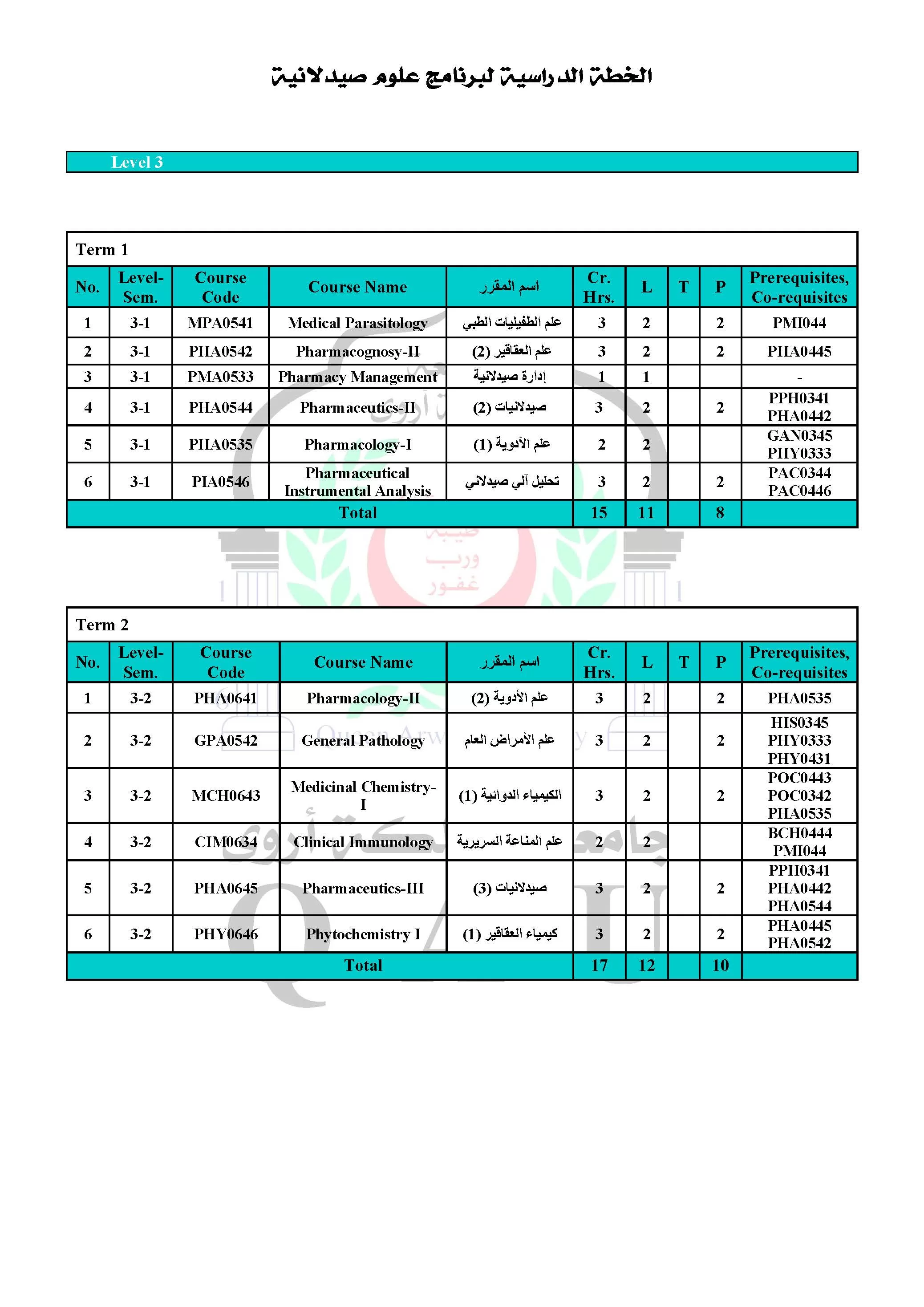
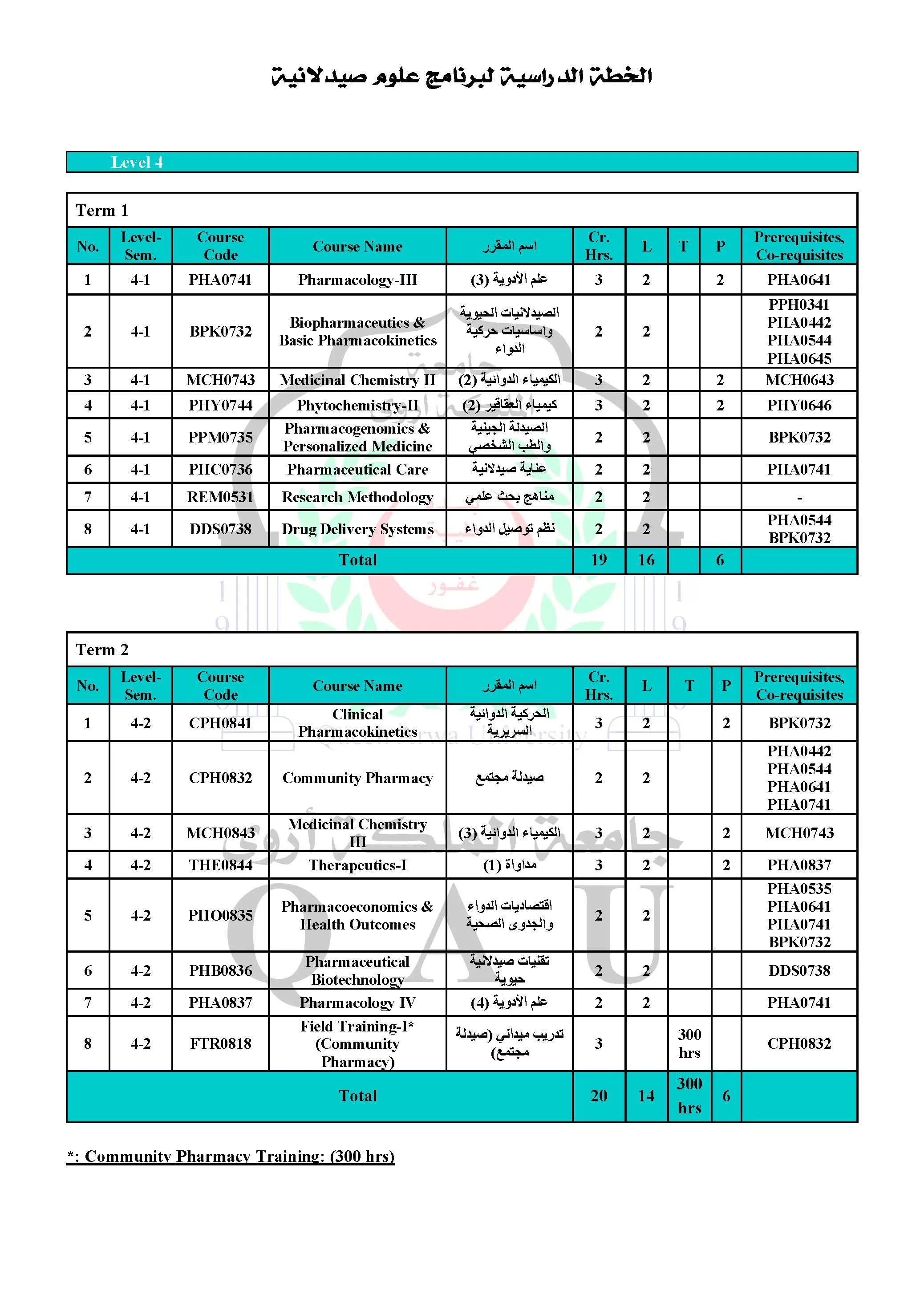
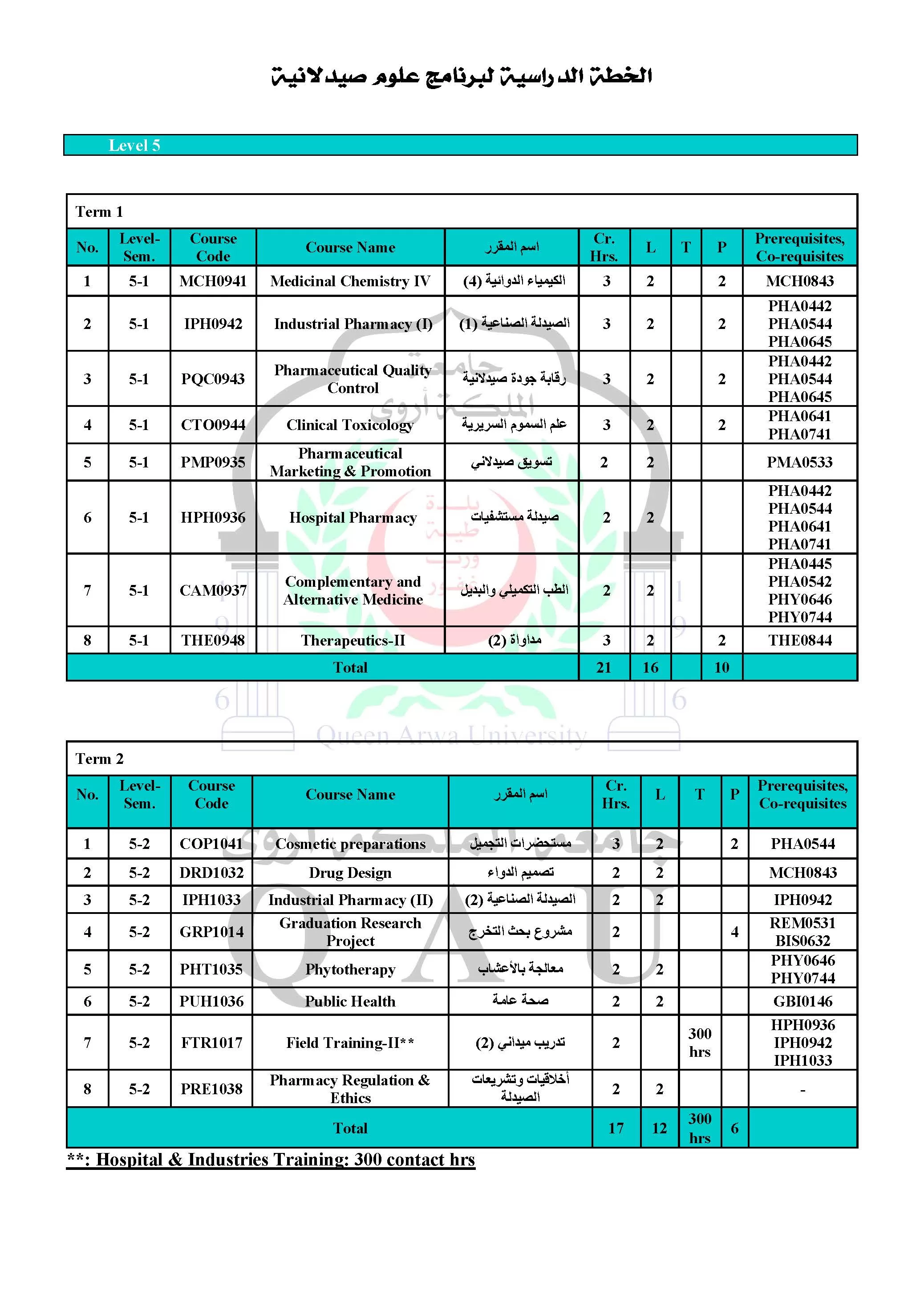
Faculty of Law
The Faculty of Law was established in the academic year 1995/1996 and is considered one of the solid scientific tributaries of the university.
Faculty of Engineering & Computer Sciences
The Faculty of Engineering and Computer Science was established in the academic year 1995/1996 AD to build an engineering generation armed with the latest modern sciences in the fields of engineering, computer science and technology, in order to raise the wheel of development in Yemen and the Arab countries.